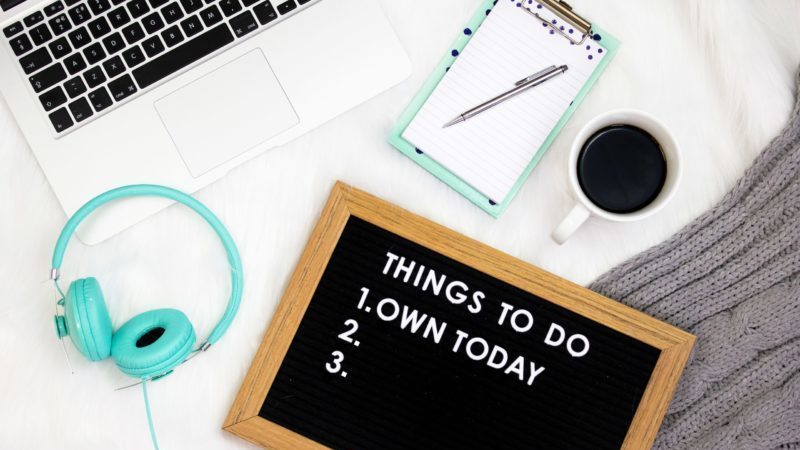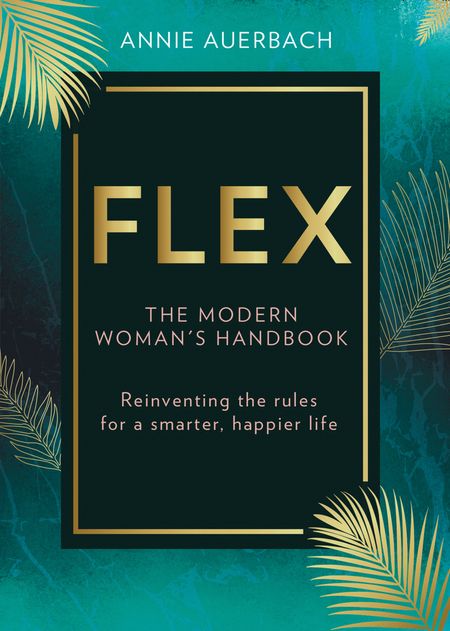We asked Annie Auerbach to share with us some top tips for working at home and getting used to a new way of living. Here’s what she had to say!
How many times in the last week have you:
- Used the word ‘unprecedented’
- Said goodbye on a zoom call…
- …and had an awkward 10 seconds while you work out how to shut the window
- Felt a rush of existential angst
- Told off your parents for popping to Tesco’s
- Signed off an email ‘stay safe’
- Had a sob locked in the bathroom away from the kids
- Felt judged and lacking by pictures of sourdough on Instagram
- Heard the phrase ‘the new normal’
In fact, there’s nothing about this period that is normal. The switch from business as usual to living in a pandemic has happened incredibly quickly. I’ve been practising and writing about flex for over 10 years. Yet I feel unmoored in a world where flexible working has gone from exception to the rule to a necessity for most of us. Here are some thoughts on how to practise flex in a time of flux:
1. Lower expectations
Try not to judge your days and your output as you would in pre-Covid-19 times. It won’t be easy, and it won’t be perfect. It’s tough to go from rigid structure to a messy day stretching ahead of you. Try not to beat yourself up about this. If there’s one place to start, it’s with the basics. Make sure you have a way to get food in the fridge; that your loved ones are looked after; that your children are happy. Once you feel safe, everything will follow.
2. Find a room of one’s own
The trend for open plan has meant that homes are designed for multi-function and multi-tasking, something that has become turbo-fuelled as we’re confined at home. Virginia Woolf wrote that a woman needs a room of her own to have the freedom to write and be creative. Find a room of your own, and by a room, I mean a toilet-seat, a spot on the stairs, an arm of the sofa – anywhere that gives you a smidgen of privacy to think, work and be.
3. Share the load
One of the weirdest things I’ve noticed about Covid-19 is a return to traditional roles. Within heterosexual relationships, I’ve heard so many stories of the male partner retreating to the home office for 12 hours of Zoom calls, while the female partner does the chores, sorts the home-schooling and tries to work. It’s as though a return to the home has brought with it a regression in attitudes. The great benefit to all of this is that the invisible work done inside the house is now visible. We must not let this period turn back the clock. Talk about it. Take turns with everything. Share the emotional load.
4. Tune out
We are living through an infodemic. There is an over-abundance of information and it’s hard to navigate that which is reliable and not. This causes anxiety and overwhelm. You cannot keep up with the amount of news, WhatsApp groups, memes – take a breath, ration your news consumption and spend time without your phone.
5. Empathy trumps productivity
Social media posts suggesting you need to be uber-productive send the wrong message: if you don’t learn a language, write a novel or pivot your whole business you are not a failure. We have been forced to press the pause button and whilst it’s frustrating, it’s also a gift. Our working culture fetishes speed, churn and efficiency. It neglects empathy, listening and considered thought. Now is the time for the latter, so revel in it.
6. Love your friends
Isolation is a lonely and scary place. At any one time, you might be on a different page to your family and friends – some are in denial, some are terrified, some use dark humour, some are calm. You may feel discombobulated and out of step, but that’s OK. Use digital platforms to hang out with friends – have chats, coffee breaks, eat lunch together, suggest a weekly happy hour. We’re so used to calls needing to be purposeful, diarised, and with an agenda, but loneliness is a problem. We need unstructured companionship too.
7. Find hard edges
Don’t be tempted to swap the 9 to 5 with the 24/7. It can feel hard to compartmentalise work when it is happening on the kitchen table, in bed or on the sofa. Your flex needs to have hard edges. Make sure you put work away at the end of the day. Have breaks or go for a walk (as long as we’re allowed to); just make sure you stop.
Annie Auerbach is the co-founder of starlingstrategy.co.uk and author of FLEX: the modern woman’s handbook.




